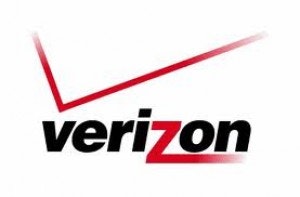It’s happening now: a monumental shift from TVs and PCs to tablets and smartphones. It’s called the mobile revolution. It’s old news right? Wrong. There is still money to be made as the mobile revolution continues to grow. We may be past the beginning, but we are nowhere near the end.

In fact, the International Data Corporation projects 18.3% annual growth in the smartphone market until 2016, a 96% increase over four years. Neil Mawston of Strategy Analytics says that the number of smartphones in the world will double in the next three years from one to two billion. By 2015, almost a third of the world will possess smartphones.
Here are three companies that will profit from the mobile trend.
Football gone mobile
Americans’ eyes are glued to football more than any other professional sport. The two most recent Super Bowls, for example, generated ratings over 48, making them the most watched television events ever. So Verizon Communications Inc. (NYSE:VZ) decided to harness this potential cash cow.
In June, Verizon Communications Inc. (NYSE:VZ) paid the NFL $1 billion for rights to air Sunday afternoon games on mobile devices. Before, Verizon Communications Inc. (NYSE:VZ) could only stream Sunday, Thursday, and Monday night games. Now, Verizon Communications Inc. (NYSE:VZ) users can enjoy Sunday afternoon games in their home market as well.
This deal is dynamite for Verizon Communications Inc. (NYSE:VZ) as it gives the carrier a way to widen its economic moat. Through the deal, Verizon Communications Inc. (NYSE:VZ) hopes to attract new customers while also earning subscription and advertising dollars through the exclusive NFL app.
The deal comes to the dismay of cable companies like Comcast Corporation (NASDAQ:CMCSA), one of many television providers who are losing their grip on exclusive rights to sports programming. Although Comcast Corporation (NASDAQ:CMCSA) is expanding its options to meet increased demand for streaming and applications (the firm recently experimented with on-demand streaming for certain programs), the NFL is the Holy Grail of television.
Advertisers especially love the NFL because games are rarely recorded for later. When consumers are watching football, it’s almost always live – no fast-forwarding commercials. Still, if consumers stop watching the games on TV, advertisers will logically reduce advertising spend on the tube.
If at first you don’t succeed…
Unfortunately for Facebook Inc (NASDAQ:FB), its highly anticipated release of the ‘Facebook Inc (NASDAQ:FB) Home’ interface did not go as well as the company hoped. The Android skin that effectively makes users’ devices revolve around Facebook Inc (NASDAQ:FB) received disappointing ratings from the get-go. Reception could have been worse, but it seemed consumers weren’t impressed with version one of Facebook Inc (NASDAQ:FB)’s mobile initiative.
Nevertheless, Facebook Inc (NASDAQ:FB) executive Sheryl Sandberg is unfazed by the lackluster performance of the first version. Said Sandberg:
“Facebook Inc (NASDAQ:FB) Home is V1 of what is a very large transformation that we think absolutely will happen, which is rebuilding your phone around people. The phone is an incredibly social device.”
The mobile world had better be ready for V2, V3, or however many versions Facebook tries before it hits the mark. By releasing Facebook Home, Facebook proved its commitment to the changing times. With its user base of over one billion, it’s only a matter of time until the social media giant learns how to cash in on its mobile advertising potential.
Microprocessors anyone?
Whether you are watching football, checking Facebook, texting, or (gasp) talking on the phone, your device will need advanced microprocessors. QUALCOMM, Inc. (NASDAQ:QCOM) makes them.
According to Forbes, QUALCOMM, Inc. (NASDAQ:QCOM) owns a 50% market share in the smartphone application processor market. QUALCOMM, Inc. (NASDAQ:QCOM) also owns 86% of the market in LTE phone modems (the framework for 4G). Forget the Apple Inc. (NASDAQ:AAPL) versus Google Inc (NASDAQ:GOOG) debate, QUALCOMM, Inc. (NASDAQ:QCOM) supplies to both.
In the microprocessing world, Intel Corporation (NASDAQ:INTC) still has the lion’s share of the market. With 65%, Intel Corporation (NASDAQ:INTC) dwarfs QUALCOMM, Inc. (NASDAQ:QCOM)’s 9.4% share. But get ready for the gap to close. Intel Corporation (NASDAQ:INTC) has such a large share because of PCs. The shift from PCs to smartphones and tablets is happening now. And as I said before, QUALCOMM, Inc. (NASDAQ:QCOM) is top dog in those markets.
Time to Buy?
Should you call your broker right now to buy these stocks? Not quite. First we should take a look at the three companies’ P/E ratios:
| Verizon | Qualcomm | ||
|---|---|---|---|
| P/E Ratio | 124 | 5,446 | 17 |
I think Qualcomm is the deal. It’s only trading at 17 times earnings and I would argue it has the most to gain from the mobile revolution.
Verizon and Facebook are certainly a tougher call. I would wait for a pullback to scoop up Verizon (its shares are trading high because it pays out a cushy 4.1% dividend). Facebook? I’ve been bullish on Facebook since it crashed following its IPO. Even with such a high P/E ratio, at just over $24 I think Facebook is going to move up. A company with such a massive user base will find a way to monetize.
Also, as I outlined in a previous post, Facebook has a guide when it comes to advertising revenue: Google Inc (NASDAQ:GOOG). Whether or not you enter buy orders for these stocks, know one thing: the mobile revolution isn’t over.
Marie Palumbo has no position in any stocks mentioned. The Motley Fool recommends Facebook. The Motley Fool owns shares of Facebook and Qualcomm. Marie is a member of The Motley Fool Blog Network — entries represent the personal opinion of the blogger and are not formally edited.
The article 3 Companies on the Right Side of the “Mobile Revolution” originally appeared on Fool.com is written by Marie Palumbo.
Copyright © 1995 – 2013 The Motley Fool, LLC. All rights reserved. The Motley Fool has a disclosure policy.




